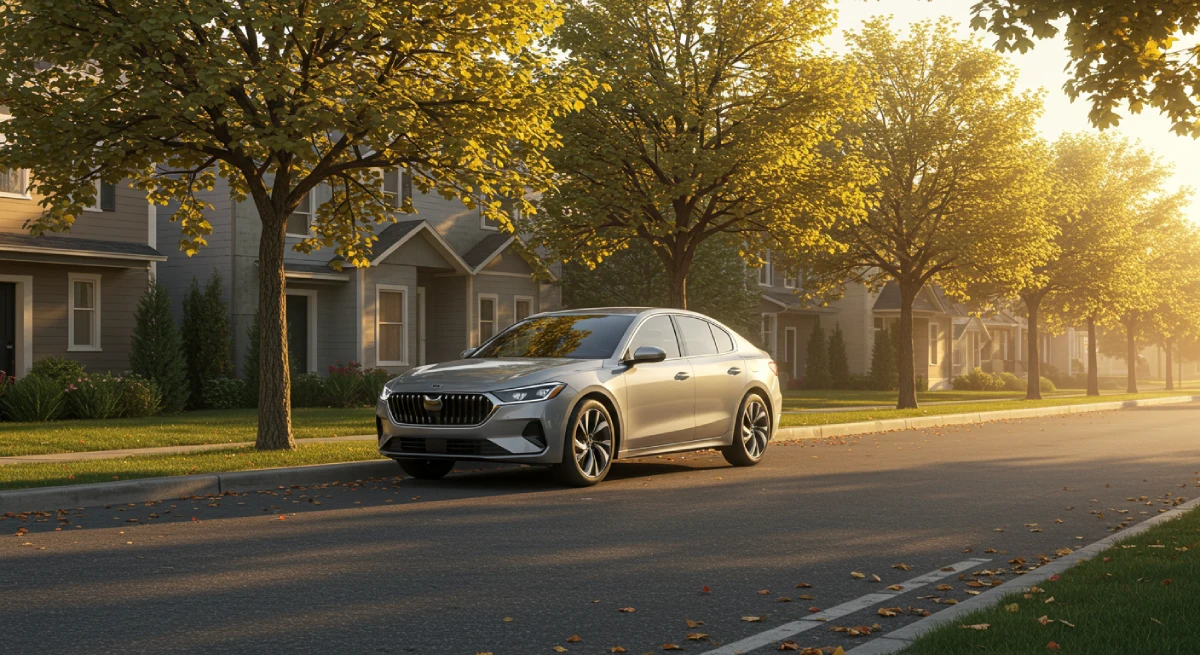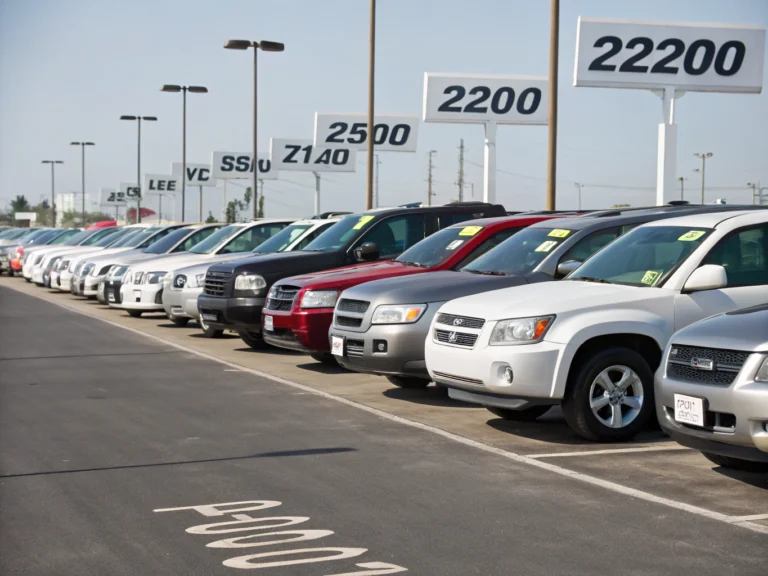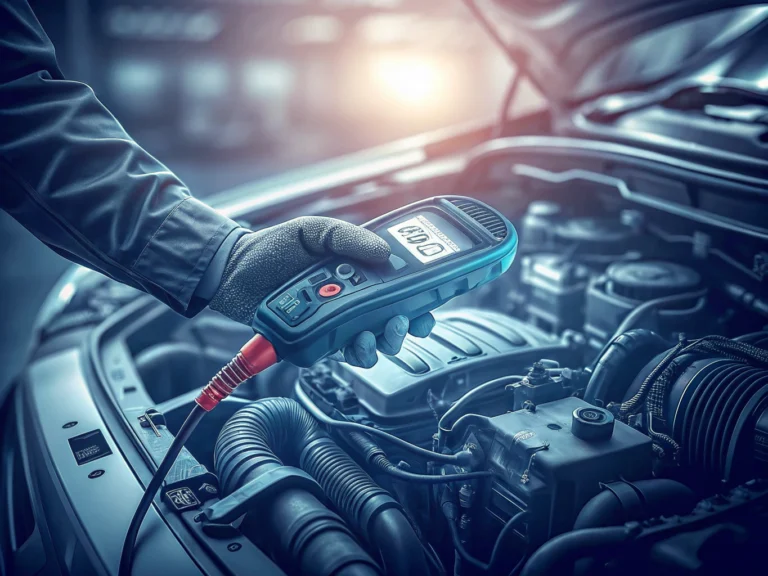2025’s Best Fuel Efficient Cars: Ultimate Guide
Table of Contents
In today’s world of fluctuating gas prices and growing environmental concerns, finding a fuel efficient vehicle isn’t just about saving money at the pump—it’s about making a smart long-term investment. Whether you’re a daily commuter looking to reduce expenses or an eco-conscious consumer aiming to minimize your carbon footprint, the right fuel efficient vehicle can significantly impact both your finances and the environment. This comprehensive guide will help you navigate the diverse landscape of fuel efficient options in 2024, tailored to your specific needs and budget.
Fuel Efficiency: Choosing the Right Vehicle for Your Needs
When shopping for a fuel-efficient vehicle, the most important consideration isn’t simply finding the car with the highest MPG rating. Instead, focus on finding the perfect balance between efficiency, practicality, and affordability for your specific situation.
Understanding Your Needs and Budget
Defining your driving habits (daily commute, weekend trips, etc.)
Before exploring specific models, take time to analyze your typical driving patterns. Do you primarily drive in stop-and-go city traffic or cruise on highways? A short-distance city commuter might benefit most from an electric vehicle, while someone who regularly takes long road trips might find a hybrid or efficient gasoline vehicle more practical. Consider your weekly mileage, typical routes, and whether you have access to charging infrastructure if considering an electric vehicle.
Setting a realistic budget and considering total cost of ownership
While the sticker price is important, the true cost of vehicle ownership extends far beyond the dealership. Calculate your total cost of ownership by factoring in:
- Fuel/energy costs over your expected ownership period
- Insurance premiums (which vary significantly by vehicle type)
- Maintenance requirements and costs
- Potential tax incentives for eco-friendly vehicles
- Expected depreciation
- Financing costs
According to data from Kelley Blue Book, many fuel-efficient vehicles command higher upfront prices but deliver substantial savings over a 5-year ownership period. Take the time to crunch these numbers based on your specific circumstances.
Exploring Fuel Efficient Vehicle Options
The market offers several distinct paths to fuel efficiency, each with unique advantages and considerations. Let’s explore the primary categories available in 2024.
Hybrid Vehicles
Benefits of hybrid technology
Hybrid vehicles combine a conventional gasoline engine with an electric motor, offering an excellent middle ground for many drivers. Modern hybrids seamlessly switch between power sources or combine them for optimal efficiency. Key benefits include:
- No range anxiety or charging infrastructure requirements
- Excellent fuel economy, particularly in city driving
- Proven, reliable technology with extensive market history
- Lower maintenance costs than conventional vehicles
- Regenerative braking that recaptures energy
Hybrids are particularly well-suited for drivers who want improved efficiency without changing their driving habits or infrastructure needs.
Top hybrid models based on fuel efficiency and cost
For 2024, several hybrid models stand out for their exceptional efficiency and value:
- Toyota Prius: Completely redesigned for 2023, the 2024 Prius achieves up to 57 MPG combined and offers more power and style than ever before.
- Honda Accord Hybrid: Delivers 48 MPG combined with the spaciousness and comfort of a midsize sedan.
- Hyundai Tucson Hybrid: For those needing an SUV, this model achieves 38 MPG combined while offering ample cargo space and modern technology.
- Toyota Camry Hybrid: A perennial favorite balancing efficiency (52 MPG combined), reliability, and comfort.
- Kia Niro Hybrid: Offering up to 53 MPG combined in a versatile crossover package.
Electric Vehicles (EVs)
Advantages and disadvantages of EVs
Electric vehicles represent the cutting edge of automotive efficiency, operating on electricity alone with zero tailpipe emissions. Their advantages include:
- Lowest “fuel” costs per mile
- Zero direct emissions while driving
- Reduced maintenance requirements (no oil changes, fewer moving parts)
- Instant torque for responsive acceleration
- Potential tax incentives and rebates
However, potential disadvantages include:
- Higher initial purchase price (though the gap is narrowing)
- Range limitations compared to gasoline vehicles
- Charging infrastructure requirements
- Longer “refueling” times compared to gasoline
- Battery degradation concerns over time
Exploring different EV types and charging options
Today’s EV market includes several distinct categories:
- Standard Battery Electric Vehicles (BEVs): Fully electric with no gasoline engine, like the Tesla Model 3, Chevrolet Bolt, and Hyundai Ioniq 5.
- Plug-in Hybrid Electric Vehicles (PHEVs): Offer limited all-electric range before switching to hybrid operation, like the Toyota RAV4 Prime or Ford Escape PHEV.
Charging infrastructure continues to expand rapidly, with options including:
- Level 1 charging: Standard 120V household outlet (slow, 3-5 miles of range per hour)
- Level 2 charging: 240V outlet like those used for dryers (medium, 25-30 miles of range per hour)
- DC Fast Charging: High-powered stations for rapid charging (fast, 100+ miles in 30 minutes for compatible vehicles)
According to the U.S. Department of Energy’s Alternative Fuels Data Center, the national charging network now exceeds 50,000 public stations, making EV ownership increasingly practical for more drivers.
Fuel Efficient Gasoline Vehicles
Latest advancements in fuel-saving technologies
Modern gasoline vehicles have made remarkable efficiency gains through innovations like:
- Turbocharging smaller engines for power with efficiency
- Cylinder deactivation that shuts down unneeded cylinders
- Advanced direct injection systems
- Continuously variable transmissions (CVTs)
- Start-stop technology that reduces idling
- Improved aerodynamics and lightweight materials
These technologies allow today’s gasoline vehicles to achieve efficiency levels that would have seemed impossible just a decade ago.
Top-performing gasoline models in terms of MPG
For those preferring traditional gasoline power, these 2024 models deliver exceptional efficiency:
- Mitsubishi Mirage: Leading non-hybrid efficiency with up to 39 MPG combined
- Honda Civic: Offering up to 36 MPG combined with renowned reliability
- Hyundai Elantra: Achieving 35 MPG combined with striking design
- Kia Rio: Delivering 36 MPG combined in an affordable package
- Nissan Versa: Providing 35 MPG combined with surprising space and features
Maximizing Fuel Efficiency and Savings
Regardless of which vehicle type you choose, how you drive and maintain your car significantly impacts your real-world efficiency and savings.
Driving Habits and Maintenance
Tips for fuel efficient drivingAdopt these driving techniques to maximize efficiency in any vehicle:
- Accelerate gradually rather than aggressively
- Maintain steady speeds and use cruise control on highways
- Anticipate traffic flow to avoid unnecessary braking
- Reduce highway speeds (fuel economy typically peaks around 55-60 mph)
- Minimize idling time
- Remove unnecessary weight from your vehicle
- Use air conditioning sparingly
These simple adjustments can improve fuel economy by 10-15% regardless of vehicle type.
Importance of regular maintenance
Proper maintenance is crucial for maintaining optimal efficiency:
- Keep tires properly inflated (check monthly)
- Use the recommended grade of motor oil
- Replace air filters regularly
- Address check engine lights promptly to prevent efficiency-robbing issues
- Follow manufacturer-recommended maintenance schedules
Regular check engine light diagnosis can help identify issues that might be affecting your vehicle’s fuel efficiency before they become major problems.
Emerging Fuel-Saving Technologies
Overview of innovative technologies
The automotive industry continues to develop cutting-edge efficiency technologies, including:
- Solid-state batteries promising greater energy density for EVs
- Hydrogen fuel cell vehicles combining electric drive with quick refueling
- Solar-integrated bodywork to extend EV range
- Advanced aerodynamic designs reducing drag
- Connected vehicle technologies optimizing routes and traffic flow
- Synthetic and bio-based fuels with lower carbon footprints
Potential impact on future fuel efficiency
These emerging technologies promise to revolutionize efficiency in coming years:
- Next-generation EVs targeting 500+ miles of range
- Hybrid systems becoming standard on most vehicle types
- Autonomous driving features optimizing efficiency through perfect acceleration and braking
- Vehicle-to-grid integration allowing EVs to support home energy needs
- Dramatically reduced charging times for electric vehicles
Industry experts predict that by 2030, the average new vehicle could achieve the equivalent of 75+ MPG through these combined innovations.
Find Your Perfect Fuel Efficient Vehicle Today!
Selecting the right fuel efficient vehicle requires balancing your specific needs, driving habits, and budget considerations. Whether you choose a hybrid, electric, or efficient gasoline vehicle, today’s market offers unprecedented options for reducing both your environmental impact and long-term ownership costs.
Consider starting with a detailed assessment of your driving patterns and a total cost of ownership calculation for several vehicle options. Test drive different technologies to experience their unique characteristics firsthand. And remember that efficiency extends beyond your vehicle choice to include how you drive and maintain your car.
With the right combination of vehicle technology and driving habits, you can enjoy significant savings while contributing to a more sustainable automotive future.
Shop Related Products:
- Find fuel efficient tires on Amazon
- Find hybrid car accessories on Amazon
- Find car battery chargers on Amazon
- Find OBD2 scanners on Amazon
- Find eco-driving gadgets on Amazon
As an Amazon Associate we earn from qualifying purchases.






